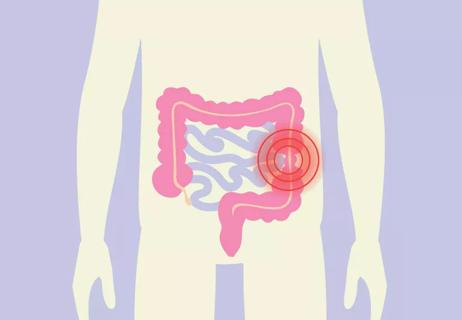Behavioral medicine techniques can help ease symptoms

The abdominal pain, gas, diarrhea or constipation of irritable bowel syndrome (IBS) can irritate more than your gut. Ongoing symptoms can irritate your mind as well, making you feel anxious, depressed, annoyed or just plain angry.
Advertisement
Cleveland Clinic is a non-profit academic medical center. Advertising on our site helps support our mission. We do not endorse non-Cleveland Clinic products or services. Policy
Those negative emotions aren’t any good for IBS. Studies show that emotional stress can make gastrointestinal symptoms worse.
But the opposite also is true, says Judith Scheman, PhD, Director of Behavioral Medicine in Cleveland Clinic’s Digestive Disease & Surgery Institute. Good emotional health can help ease IBS symptoms. So we spoke with her to get the low-down on how behavioral medicine techniques can help your brain help your belly feel better.
Your brain and spinal cord form your body’s central nervous system. Nerve cells and neurotransmitters, which are chemicals that send signals from one nerve cell to another, run from your brain through your body. Those that run along your gastrointestinal tract — including through your stomach and intestines — are called the enteric nervous system.
“Your brain and belly talk to each other through this network of nerves,” Dr. Scheman says. “And they respond to the same neurotransmitters. That explains why emotional distress can cause digestive distress and vice versa.”
Some of the neurotransmitters responsible for our emotions, such as serotonin, are actually produced in the gut, Dr. Scheman adds. “Perhaps that’s why we describe our emotions in gut-related terms. Maybe it is why we say that things are ‘gut-wrenching’ or ‘nauseating.’”
Advertisement
In turn, stress releases pro-inflammatory agents, increasing inflammation in our gut and elsewhere. It can affect our immune system, as well as the ability of our gut to function properly.
It can also slow down or speed up gut motility, the movement of the muscles in your gastrointestinal tract. For example, stress can trigger a fight-or-flight reaction in your central nervous system. Your hormones and neurotransmitters start pumping and your enteric nervous system responds by slowing down or stopping digestion to reserve energy for warding off danger. And that slower digestion can lead to abdominal pain or other gastrointestinal problems.
On the flip-side, Dr. Scheman adds, faster gut motility can result in problems like diarrhea.
Because of this brain-gut connection, gastrointestinal and behavioral medicine together can treat IBS and other digestive disorders. Sometimes it takes both to help you cope with ongoing symptoms.
Behavioral medicine treatments for IBS include:
Behavioral medicine techniques like these can help improve your mood and your quality of life. And that can mean fewer IBS flare-ups.
If medication or other treatments aren’t helping your IBS, or if you notice that stress makes your symptoms worse, be sure to contact your health care provider to see what next steps you might consider.
Advertisement
Learn more about our editorial process.
Advertisement

A low-FODMAP diet or gluten-free diet could help you manage your symptoms, but only with professional guidance

Triggers can range from the foods you eat and the medications you take to how often you exercise and how stressed you are

Changes in eating, exercise and sleep habits often can help reduce symptoms

Pediatric IBS treatment involves making dietary adjustments, getting mental health support and — in some cases — taking prescription medication

Symptoms of IBS usually include abdominal pain, coupled with bloating and more

You don’t have to limit travel with proper planning

Jaundice that’s present at birth or lasts more than a week should be evaluated by a pediatrician

Drowsiness is a side effect of inflammation, disrupted sleep and, sometimes, your allergy medicine

If you’re feeling short of breath, sleep can be tough — propping yourself up or sleeping on your side may help

If you fear the unknown or find yourself needing reassurance often, you may identify with this attachment style

If you’re looking to boost your gut health, it’s better to get fiber from whole foods